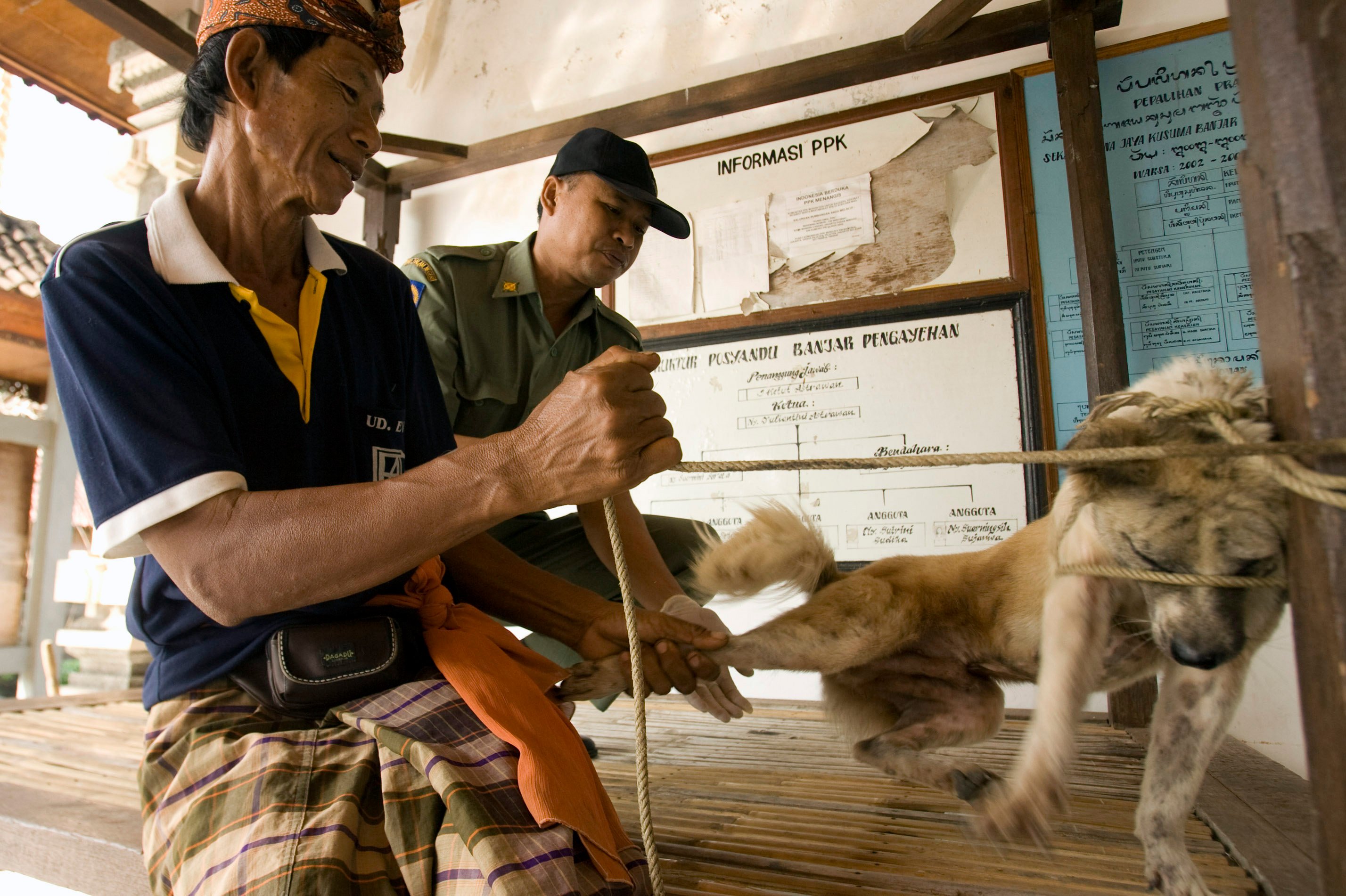Rabies fears rise in Bali as tourist hotspots declared ‘red zones’
Officials say the recorded number of dog bites in the affected areas remains low but the risk of the disease spreading is still high

Authorities in Indonesia’s holiday hotspot Bali have stepped up emergency animal vaccinations and public health warnings after designating several popular tourist areas, including large parts of South Kuta, as rabies “red zones” amid a surge in infections and animal bite incidents.
The Badung Agriculture and Food Service recently confirmed that at least one to two dogs in each of several affected villages tested positive for rabies this month.
Under local protocols, the presence of even a single confirmed case is enough to classify a village as a red zone – an area where rabies is actively circulating and urgent interventions are required. Mass vaccination drives were launched following a spate of dog bites in those areas.
Anak Agung Istri Brahmi Witari, acting head of animal health for the service, said much of South Kuta had been designated a rabies red zone.
He emphasised that although there were not many cases of dogs biting humans – only one or two per village, on average – the potential for spread remained high due to the large number of strays in the area.
“The reason much of South Kuta is in the red zone is that the terrain has a lot of bushes, which are used as nests by stray dogs,” he explained on Friday, as quoted by local news outlet Bali Post.
“Even though there are only one or two cases per region, we take it seriously. We immediately carried out vaccinations and sweeps. What is important is not the number of cases, but the potential for spread,” he added.

The affected areas in Badung Regency include Tanjung Benoa, Nusa Dua and Jimbaran, as well as parts of Mengwi district such as Pererenan Beach and Seseh – all popular with international visitors.
Tourists are being advised to avoid contact with stray dogs and monkeys and to seek immediate medical treatment if bitten or scratched.
The threat is not limited to Badung. In Jembrana Regency, in Bali’s west, 1,906 animal bite cases were recorded between January and April 2025.
Provincewide, there were 8,801 bite incidents by the end of March, with at least six confirmed human fatalities, according to Disway Bali.
Rabies, a viral disease transmitted primarily through dog bites, is almost universally fatal once symptoms appear. However, it can be prevented through prompt wound cleaning and post-exposure prophylaxis, including vaccination and rabies immunoglobulin.
Unhandled type: inline-plus-widget {“type”:”inline-plus-widget”}
Bali has faced recurring rabies outbreaks since 2008 despite annual vaccination campaigns.
In Denpasar, officials have reported alarmingly low vaccination rates, with only 2,266 of an estimated 74,000 dogs having been vaccinated as of February – just 2.75 per cent of the total – according to CNN Indonesia.
The urgency of the issue was underscored by the death of a 35-year-old man in Buleleng in March, six months after he was bitten by a stray dog. Officials said he only washed his wound and did not receive the anti-rabies vaccine.